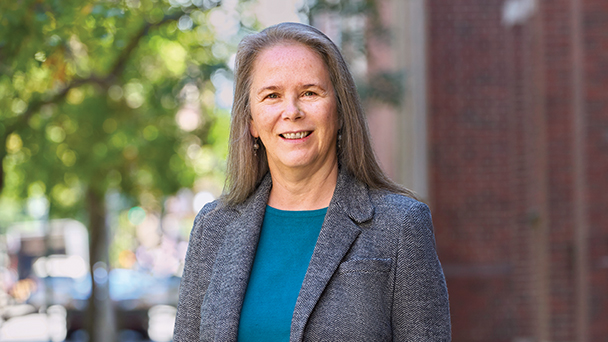
Cynthia Estlund is the Crystal Eastman Professor of Law at the New York University School of Law.
The so-called “flexibility trope” that Professor Sachs identifies and dismantles in his recent post is, I fear, a bit of a red herring. When Uber or other gig economy firms argue that workers will lose flexibility if they are classified as employees, I do not think they are saying that they will be legally required to exercise greater control over workers’ hours in that event. Professor Sachs is right to debunk that notion. I think these firms are saying instead that they will in fact exercise greater control over hours and scheduling, and that workers will therefore lose flexibility.
Why would that be so? Because it will probably make good economic sense for platforms to tighten up on control of worker/employees and when they work. There are at least two reasons for that. First, greater control over hours of work is likely to have some advantages to the firm — advantages that these platforms are foregoing only because they are trying to avoid being deemed an employer, and to avoid the costs and constraints associated with employer status. If the platforms are held to be the employer of these workers anyway, then they might as well take advantage of the control they can exercise over employees. (In an earlier post about Uber, Professor Sachs called this argument “speculative and … contrary to everything Uber has said about its business model.” But Uber’s business model is based on treating drivers as independent contractors; if that falls, then so does what seems to be the main reason for leaving flexibility in the hands of drivers versus claiming it for the firm.)
Second, platforms might feel compelled to exercise greater control over hours in order to manage liabilities associated with employer status. For example, allowing employees complete control over their own hours might enable them to unilaterally put the platform on the hook for overtime. Moreover, the fact that employers are vicariously liable for their employees’ (but not their independent contractors’) torts might also induce firms to exercise more control over the former. That is in fact the whole point of vicarious liability.
In short, it seems very likely that many of these platforms – if they continue to operate at all outside of the independent contractor model – would squeeze out a good deal of the flexibility that workers currently enjoy in choosing their hours of work. If the platforms are deemed employers, they will predictably seize much of that flexibility for themselves to whatever degree it increases their profits.
To be sure, some firms might seek to recruit workers by promising them flexibility. But there’s no obvious reason to expect them to do that to any greater degree than employers generally offer their employees such flexibility. In short, if gig workers become employees, they are likely to end up with about as much flexibility as current employees enjoy. And that is usually not much, especially as long as “just-in-time” scheduling practices are lawful.
None of this is to say that it is necessarily a mistake to classify gig workers as employees. There are obviously tradeoffs, and many of them favor employees versus independent contractors. There might also be good societal reasons to shore up the employment model and resist its erosion. But it is a mistake, I think, to argue that workers will lose nothing. There are surely some workers who genuinely value the greater flexibility of current platform arrangements more than the rights and protections of employment law that would accrue to them as employees, and who are likely to lose that flexibility as employees. For those workers, flexibility is not just a trope.






Daily News & Commentary
Start your day with our roundup of the latest labor developments. See all
January 29
Texas pauses H-1B hiring; NLRB General Counsel announces new procedures and priorities; Fourth Circuit rejects a teacher's challenge to pronoun policies.
January 28
Over 15,000 New York City nurses continue to strike with support from Mayor Mamdani; a judge grants a preliminary injunction that prevents DHS from ending family reunification parole programs for thousands of family members of U.S. citizens and green-card holders; and decisions in SDNY address whether employees may receive accommodations for telework due to potential exposure to COVID-19 when essential functions cannot be completed at home.
January 27
NYC's new delivery-app tipping law takes effect; 31,000 Kaiser Permanente nurses and healthcare workers go on strike; the NJ Appellate Division revives Atlantic City casino workers’ lawsuit challenging the state’s casino smoking exemption.
January 26
Unions mourn Alex Pretti, EEOC concentrates power, courts decide reach of EFAA.
January 25
Uber and Lyft face class actions against “women preference” matching, Virginia home healthcare workers push for a collective bargaining bill, and the NLRB launches a new intake protocol.
January 22
Hyundai’s labor union warns against the introduction of humanoid robots; Oregon and California trades unions take different paths to advocate for union jobs.